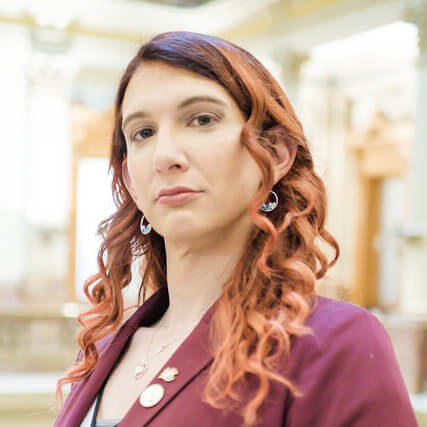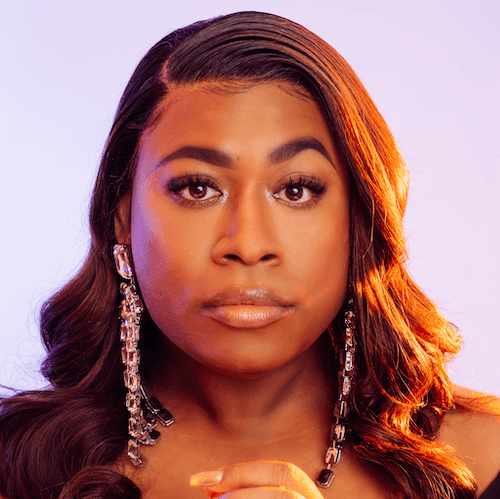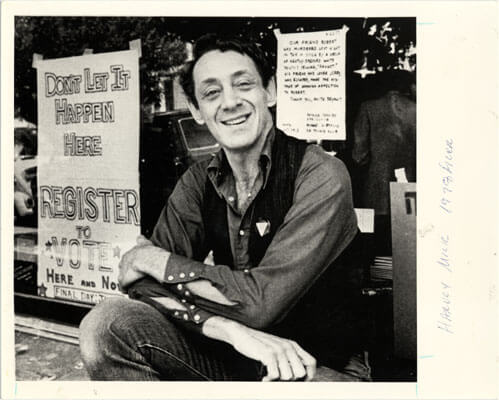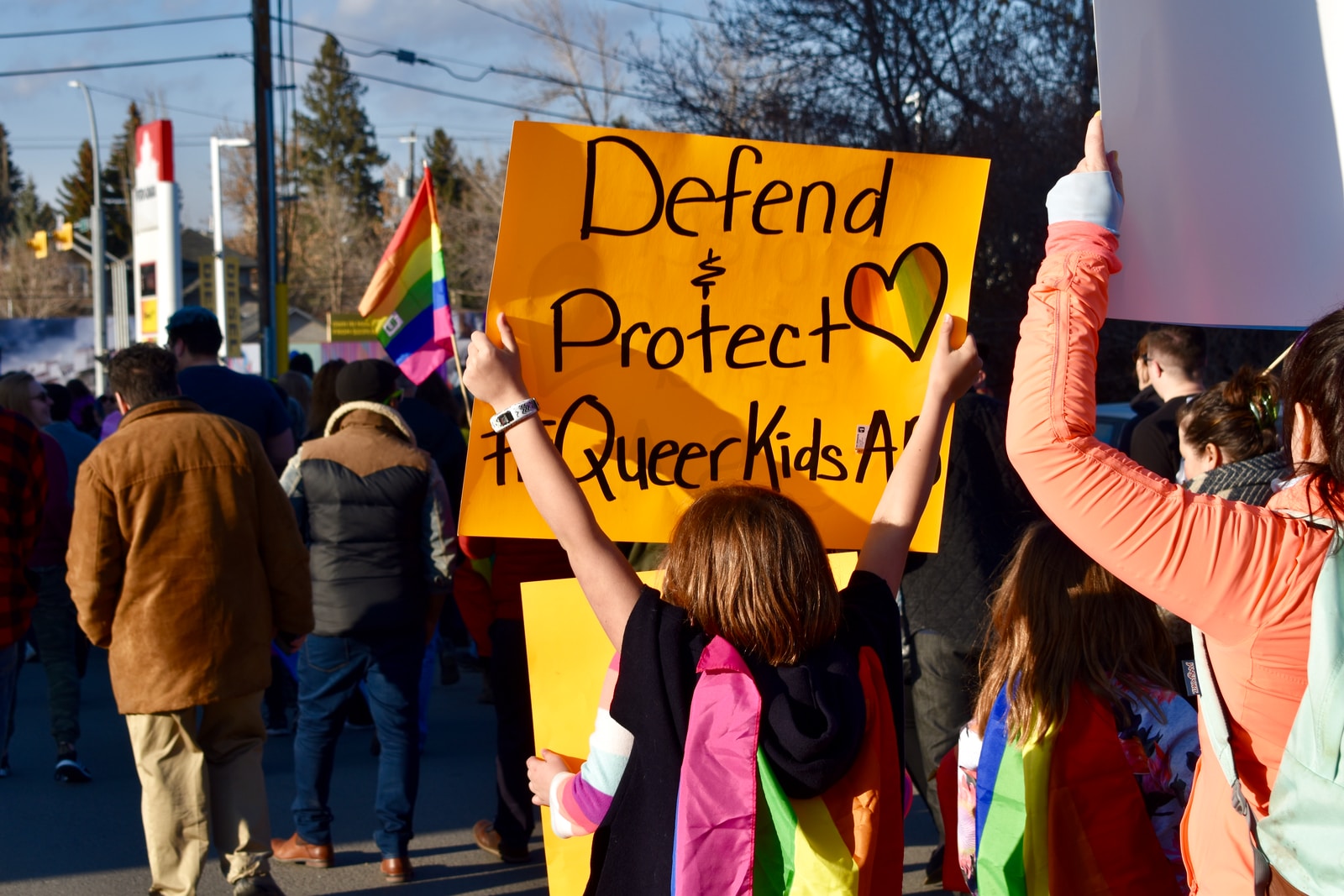Making the Connection Between LGBTQ+ Liberation, Racial Justice, and Economic Power
Making the Connection Between LGBTQ+ Liberation, Racial Justice, and Economic Power
By: Ida Eskamani, SiX's Senior Director, Legislative Affairs

The Economic Power Project (EPP) is SiX's national economic justice initiative, organizing legislators committed to building economies that empower people and advance justice. For Pride Month, originating from the Stonewall Uprising of June 28, 1969, we’re highlighting the intersection of LGBTQ+ liberation, racial justice, and economic power.
As a legislator advocating for the LGBTQ+ residents in your state, it is imperative to work in collaboration with our state-based LGBTQ+ organizations and organizers. Need help getting connected? SiX can help. Contact SiX’s Ida V. Eskamani, Senior Director, Legislative Affairs, ida@stateinnovation.org.
Pride in Understanding the Opposition
The so-called “culture wars'' are directly tied to economic justice – designed to both divide communities and deny economic opportunity to LGBTQ+ working people. And because racism is entrenched in our economic system, it is Black queer working people most impacted. Solidarity is also essential in our work: the same coordinated network of extremist billionaires, think tanks, and corporations pushing anti-LGBTQ+ laws also aims to privatize education, weaken unions, and repeal child labor protections. Billionaires like the DeVos, Uline, and Koch families, along with think tanks such as the Foundation for Government Accountability, The Heritage Foundation, and groups like the Alliance Defending Freedom and American Legislative Exchange Council (ALEC), are key players in this effort to undermine our collective progress, and centralize control of our economy and democracy among the elite.
Pride in Equal Pay
June 13 marked LGBTQ+ Equal Pay Awareness Day. Organizers in state capitols across the country have long-advocated for equal pay for all – our fight for equal pay takes an intersectional approach, acknowledging that the wage gap is magnified for LGBTQ+ people, especially Black trans woman. The National Women’s Law Center broke down emerging pay gap data for full time LGBTQ+ workers here. Spread awareness of the LGBTQ+ pay gap with this social media toolkit!
Pride in Paid Family Medical & Leave
By embracing inclusive definitions of family, our laws can better support the diverse structures of all families, including chosen family members, crucial for LGBTQ+ workers. States like Minnesota and Maine are at the forefront, implementing comprehensive paid leave programs that include all families.
Pride in Public Schools
The Washington Post recently ran a major story on the billions of taxpayer dollars that have been spent to subsidize private religious schools through voucher plans. School vouchers further anti-LGBTQ+ discrimination and are rooted in segregation-era policies. Strengthening public schools is directly linked to LGBTQ+ justice. AFT’s Real Solutions for Kids and Communities offers solutions. States can protect LGBTQ+ students; as well as introduce inclusive curricular standards.
Pride in Housing Justice
From family rejection leading to LGBTQ+ youth experiencing homelessness, to LGBTQ+ elders facing new forms of discrimination in retirement, and every stage of life in between; housing and LGBTQ+ justice are connected. Tenant organizers across the country are working with legislators to advance this agenda, via just cause eviction, rent hike caps, and opportunity to purchase; as well as regulating corporate landlord AI-rent setting and private equity buyouts.
Pride in Criminal Legal System Reform
Criminalization in itself is a profit-driven agenda: incarceration is a multi-billionaire dollar industry that we all subsidize with tax dollars. The Stonewall Uprising of 1969 was in response to police brutality and criminalization targeting queer communities, and queer people have always been over-criminalized and over-incarcerated. According to the Sentencing Project, LGBTQ+ adults are incarcerated at three times the rate of the general population. Among trans people, 1 in 6 report being incarcerated at any point in their lives, and nearly half of those are Black trans people. From queer youth to adulthood, criminalization sits on the intersection of LGBTQ+ identities, racism, and classism. This brief by the Sentencing Project examines the criminalization and over-incarceration of LGBTQ+ people in the United States, highlighting the drivers of overrepresentation and presenting recommendations for reform.
Pride in Our Irresistible Futures
When we dismantle the structural barriers LGBTQ+ people face, we are all more free. We hope you can join us and 600 state legislators and partners as we build an irresistible future, where all people have power and agency over our lives at SiX's 2024 National Conference in Atlanta, Georgia from December 11-13. Early Bird Registration is now open.
The Economic Power Project is an effort spearheaded by SiX’s Legislative Affairs team.
Contact SiX’s Ida V. Eskamani, Senior Director, Legislative Affairs, ida@stateinnovation.org.





